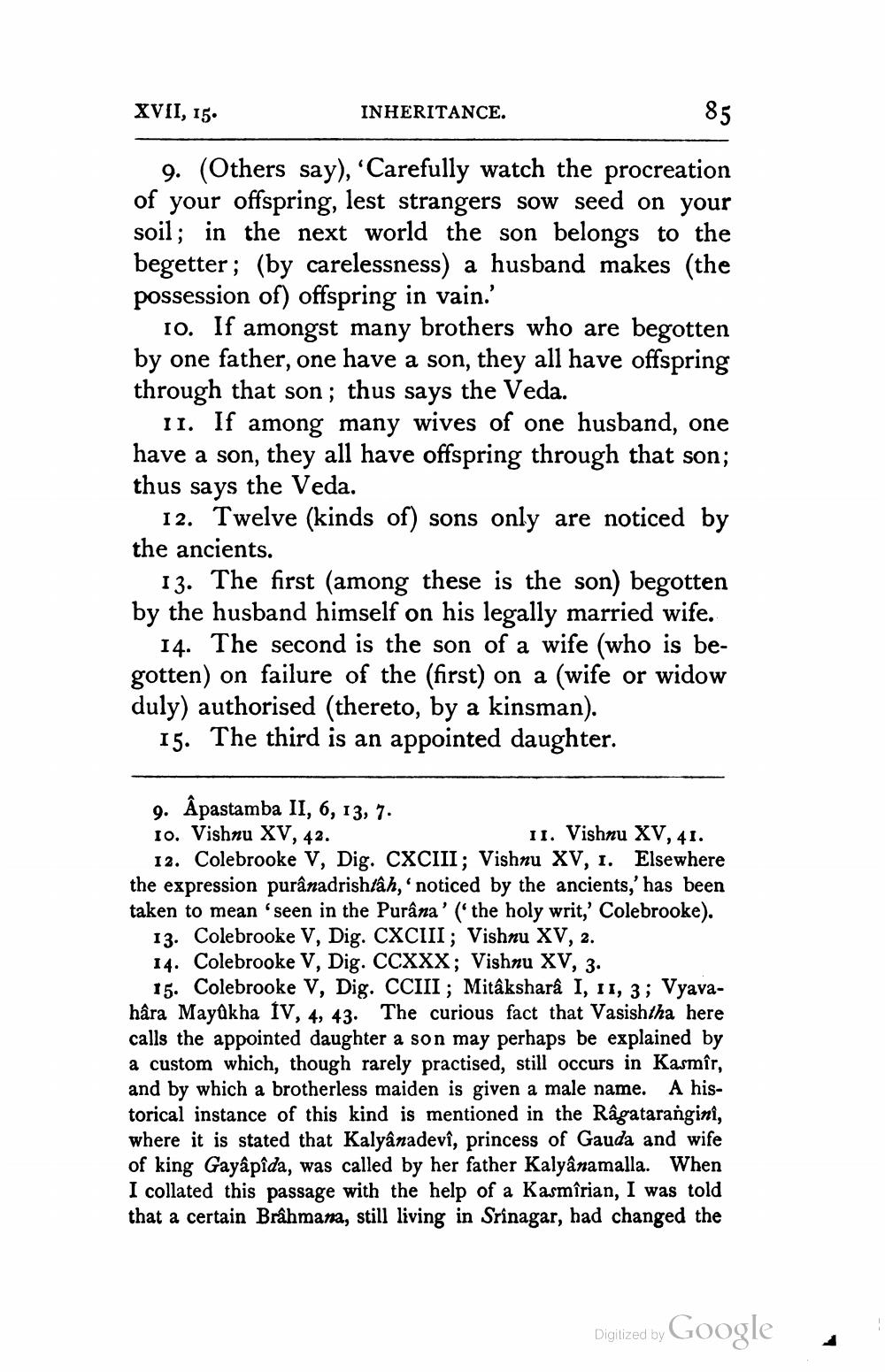________________
XVII, 15.
INHERITANCE.
85
9. (Others say), 'Carefully watch the procreation of your offspring, lest strangers sow seed on your soil; in the next world the son belongs to the begetter; (by carelessness) a husband makes (the possession of) offspring in vain.'
10. If amongst many brothers who are begotten by one father, one have a son, they all have offspring through that son; thus says the Veda.
11. If among many wives of one husband, one have a son, they all have offspring through that son; thus says the Veda.
12. Twelve (kinds of) sons only are noticed by the ancients.
13. The first (among these is the son) begotten by the husband himself on his legally married wife.
14. The second is the son of a wife (who is begotten) on failure of the (first) on a (wife or widow duly) authorised (thereto, by a kinsman).
15. The third is an appointed daughter.
9. Âpastamba II, 6, 13, 7. 10. Vishnu XV, 42.
11. Vishnu XV, 41. 12. Colebrooke V, Dig. CXCIII; Vishnu XV, 1. Elsewhere the expression purânadrishtâh, noticed by the ancients,' has been taken to mean 'seen in the Purâna' ('the holy writ,' Colebrooke).
13. Colebrooke V, Dig. CXCIII; Vishnu XV, 2. 14. Colebrooke V, Dig. CCXXX; Vishnu XV, 3.
15. Colebrooke V, Dig. CCIII; Mitâksharâ I, II, 3; Vyavahâra Mayûkha IV, 4, 43. The curious fact that Vasishtha here calls the appointed daughter a son may perhaps be explained by a custom which, though rarely practised, still occurs in Kasmîr, and by which a brotherless maiden is given a male name. A historical instance of this kind is mentioned in the Râgatarangini, where it is stated that Kalyânadevî, princess of Gauda and wife of king Gayâpida, was called by her father Kalyanamalla. When I collated this passage with the help of a Kasmîrian, I was told that a certain Brâhmana, still living in Srinagar, had changed the
Digitized by Google




